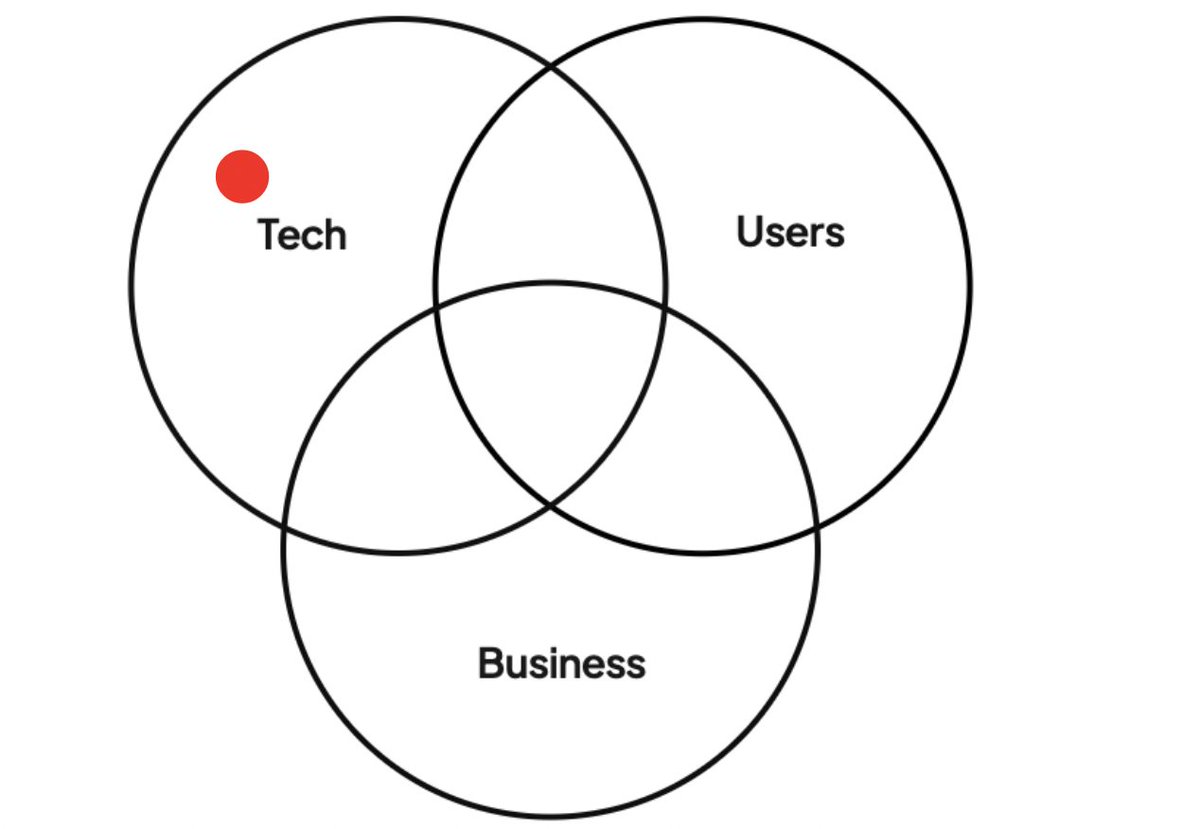
In B2B #prodmgmt, you're going to come across industry/subject-matter experts. These are people with deep industry knowledge and sometimes get a bad rap from PMs but they can be super helpful, especially in complex industries. Let's dive in
1/6
1/6

1. The Potential Disruptor
They have product chops and maybe built a product in this industry before, so they know where the pitfalls are, broadly what can & can't be done, and are the most likely to help the product team build something disruptive and new. 2/6
They have product chops and maybe built a product in this industry before, so they know where the pitfalls are, broadly what can & can't be done, and are the most likely to help the product team build something disruptive and new. 2/6
2. The Essential Informer
They know the industry inside and out, but they've never built a product to speak of. They are the closest equivalent of your customers, but they aren't your customers. They can be super-insightful partners but beware of status quo bias. 3/6
They know the industry inside and out, but they've never built a product to speak of. They are the closest equivalent of your customers, but they aren't your customers. They can be super-insightful partners but beware of status quo bias. 3/6
3. The Customer Enquirer
The good old-fashioned generalist PM, who believes that good (hopefully continuous) discovery and a solid vision & strategy will see them through. Likely to have little status quo bias, but limited industry credibility & need help with the acronyms. 4/6
The good old-fashioned generalist PM, who believes that good (hopefully continuous) discovery and a solid vision & strategy will see them through. Likely to have little status quo bias, but limited industry credibility & need help with the acronyms. 4/6
4. The Helpful Observer
Ones to watch - maybe they'll develop industry or product expertise. Meanwhile, they can help sense check you & make sure you're not doing anything quite obviously stupid. It's also true that good insight can come from anywhere. Don't ignore them. 5/6
Ones to watch - maybe they'll develop industry or product expertise. Meanwhile, they can help sense check you & make sure you're not doing anything quite obviously stupid. It's also true that good insight can come from anywhere. Don't ignore them. 5/6
I'm planning to write a more detailed blog post about industry experts with some hints & tips on how to best harness their wealth of experience and insight without becoming a project manager for their desires. Coming soon! 6/6
• • •
Missing some Tweet in this thread? You can try to
force a refresh







